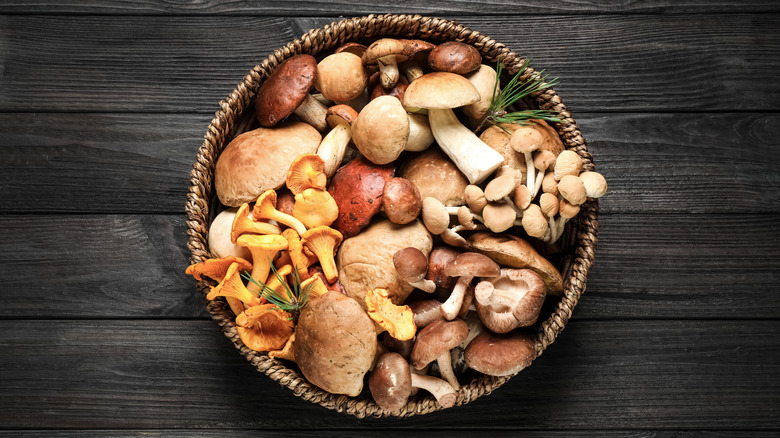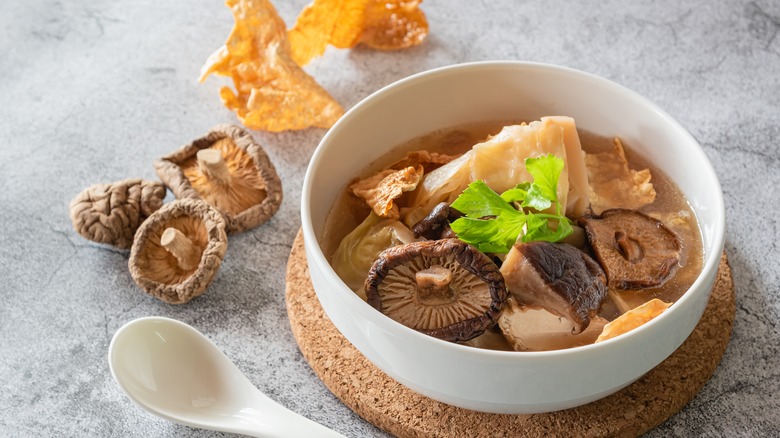Mushrooms Provide More Nutrients Than You Might Think
Apart from the occasional portobello bun or vegan take on steak, mushrooms are rarely the star of the plate. Often assigned an accompanying role of side dish component, they're regularly robbed of their time to shine as the hero. However, the small roles they take on never disappoint as the foraged fungi are packed with that elusive taste, umami, that levels up any dish.
Habitually overlooked are the string of nutrients and health benefits that can be attributed to the gilled guys. But, per the USDA, that list happens to be pretty significant — and just might make you reconsider how big of a part you cast the starlet shrooms in your next meal. Thanks to the growing popularity of adaptogen blends, mushroom coffees, and other bio-hacking nootropic products that contain this fungi popping up on shelves, it's time to cast the spotlight on the mighty mushroom and the many nutrients it provides.
A pretty super food
There are over 2,000 varieties of edible mushrooms on this planet, per a 2021 study published in Comprehensive Reviews in Food Science and Safety. Needless to say, a blanket list of vitamin and mineral levels and nutritional benefits credited to all varieties is next to impossible. Furthermore, the fungi's nutritional composition is also impacted by how you consume it, be it raw, sliced or stir-fried.
However, a project undertaken by the Agricultural Research Services and published by the USDA analyzed the most popular types of edible mushrooms and found key nutrients such as copper, potassium, niacin, and folate. In addition, a review published in Molecules in 2015 found mushrooms contains significant antioxidant properties, which aid in fighting oxidative stress.
Another study published in Nutrition Today explored the nutrient profile unique to fungi and found that mushrooms' intake is growing as more people adopt a plant-based diet. Moreover, these fungi are linked to anti-cancer effects and boosted immune system function. Pretty awesome, no?

